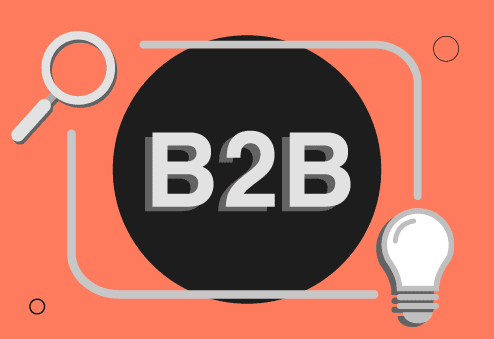Shopify is one of the most popular eCommerce platforms in the world. It’s known for its user-friendly interface, powerful integrations, and scalability. Whether you’re starting a small online store or managing a growing business, Shopify offers a solid foundation. However, it’s not the perfect fit for everyone and sometimes many peoples looking for shopify alternatives.
Some business owners find Shopify too expensive, limiting in terms of customization, or restrictive due to transaction fees and third-party app dependency. That’s why many are searching for Shopify alternatives that better suit their needs.
In this guide, we’ll explore the best Shopify alternatives—covering their key features, pros, cons, and pricing—so you can make an informed decision for your online store.
1. Wix eCommerce
Best for: Beginners and small businesses
- Pros: Easy drag-and-drop editor, beautiful templates, built-in SEO tools
- Cons: Limited scalability, fewer eCommerce features than Shopify
- Pricing: Starts at $27/month
Wix is perfect for those just starting out with minimal technical experience. It’s intuitive and affordable, making it a strong Shopify alternative for new entrepreneurs.
2. BigCommerce
Best for: Growing and enterprise-level businesses
- Pros: No transaction fees, robust product management, SEO-friendly
- Cons: Learning curve, higher cost at scale
- Pricing: Starts at $39/month
BigCommerce offers more built-in features than Shopify, reducing reliance on third-party apps and saving long-term costs.
3. Squarespace
Best for: Creatives and content-driven stores
- Pros: Stunning templates, easy-to-use builder, great for branding
- Cons: Limited advanced eCommerce tools
- Pricing: Starts at $23/month
If you’re a creator selling digital or physical products with a focus on aesthetics, Squarespace is a strong Shopify competitor.
4. WooCommerce
Best for: WordPress users and developers
- Pros: Fully customizable, open-source, extensive plugin ecosystem
- Cons: Requires hosting and some technical knowledge
- Pricing: Free core plugin (additional costs for hosting and extensions)
WooCommerce is ideal for those who want full control over their store and already use WordPress.
5. Shift4Shop (formerly 3dcart)
Best for: Budget-conscious sellers in the U.S.
- Pros: Feature-rich, no monthly fees with Shift4 payment use
- Cons: Outdated templates, not as user-friendly
- Pricing: Free if using Shift4 Payments
For U.S.-based businesses, Shift4Shop offers a powerful feature set at no cost.
6. Magento (Adobe Commerce)
Best for: Large businesses with custom needs
- Pros: Highly scalable, advanced features, global eCommerce support
- Cons: Requires development skills, high maintenance costs
- Pricing: Varies (Enterprise-level pricing)
Magento Commerce is a top Shopify alternative for enterprises needing tailored eCommerce solutions.
7. Sellfy
Best for: Digital products and creators
- Pros: Simple setup, digital product focus, built-in marketing tools
- Cons: Limited design options, fewer integrations
- Pricing: Starts at $29/month
Creators looking to sell digital goods, subscriptions, or print-on-demand items should consider Sellfy.
8. Ecwid
Best for: Adding eCommerce to existing sites
- Pros: Free plan, integrates with any website, social media selling
- Cons: Less customizable than full platforms
- Pricing: Free plan available; premium starts at $19/month
Ecwid is great for adding an online store to an existing website without switching platforms.
9. SureCart
Best for: Entrepreneurs, creators, and agencies looking for a fast, flexible eCommerce setup on WordPress.
- Pros: Modern checkout system, powerful sales features (subscriptions, pay-what-you-want, cart-abandonment, order bumps, upsell)
- Cons: Requires WordPress familiarity
- Pricing: Free plan available; paid plans start at $179/year
SureCart is headless managed eCommerce platform built for WordPress users who want powerful features without the complexity. It’s well-suited for physical and digital product sellers, coaches, agencies, and anyone who values speed, simplicity, and scalability.
10. Whop
Best for: Anyone building an online business—from digital products to services
- Pros: Free to start. Sell everything from downloads to full communities, no monthly fees, built-in audience and marketplace exposure
- Cons: Limited design flexibility when building a store compared to other platforms
- Pricing: ~3% platform fee on direct sales
Whop is a social commerce platform for selling products, services, and memberships. It includes everything—checkout, marketing, support, and payments—plus built-in marketplace exposure, all with no monthly fees.
Conclusion
Choosing the right eCommerce platform is crucial to your online store’s success. While Shopify is a solid and popular choice, it’s not the only option available. Whether you’re looking for more customization, lower costs, or better scalability, there are several powerful Shopify alternatives that can better match your unique business needs.
From user-friendly builders like Wix and Squarespace to scalable powerhouses like BigCommerce and Magento, each alternative offers different strengths. Evaluate your goals, technical skills, and budget carefully to select the best fit.
Exploring these alternatives could be the key to unlocking more flexibility, improved features, or even stronger SEO performance, especially if you’re considering platforms like WooCommerce. Don’t forget to compare in-depth with our related guide: Shopify vs WooCommerce: Which Dominates in SEO.
Ready to build smarter? Pick the platform that works for you, not against you.
FAQs About Shopify Alternatives
What is the best free alternative to Shopify?
Ecwid offers a robust free plan, especially for small businesses looking to start selling online quickly.
Which Shopify alternative is best for digital products?
Sellfy and WooCommerce are both excellent for selling digital goods, offering tailored features and ease of delivery.
Is BigCommerce better than Shopify?
BigCommerce has more built-in features and no transaction fees, which can make it more cost-effective for larger stores.
Can I migrate from Shopify to another platform?
Yes. Most platforms offer tools or services to help you export your products, customers, and orders from Shopify.




